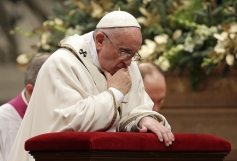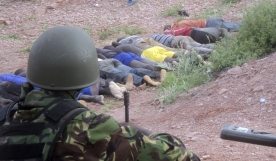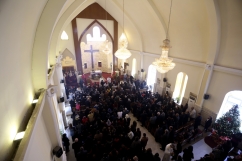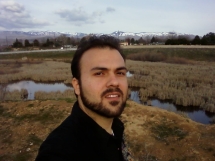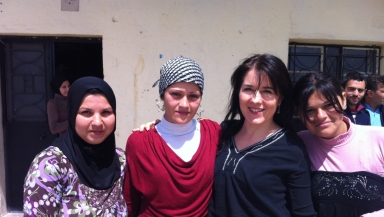
Christianity in the Middle East is facing extinction, according to Open Doors – but other countries are seeing increases in persecution as well.
The charity has today issued annual World Watch list focusing on persecution around the world.
It reveals that persecution of Christians increased in 2014 in more countries and with more intensity than ever before.
The Middle East has been hit particularly hard and Christianity is in danger of disappearing from the region altogether as refugees continue to flee in vast numbers.
There are now only 300,000 Christians left in Iraq, compared with 1.2 million in 1990. The World Watch List says that more than 700,000 Christians have left Syria since the conflict broke out in 2011, with 200,000 fleeing in 2014 alone. One of the key trends contributing to this rise is the increase in Islamist extremism, which is noted as a major factor in persecution against Christians in 18 out of the top 20 countries in the World Watch List.

However, persecution is far more widespread than the Middle East and in some countries is even more severe. According to Open Doors, one of the biggest trends is the rise in persecution in countries where it has not historically been an issue – in parts of Asia, Latin America, and especially sub-Saharan Africa. Even Christian-majority states are experiencing unprecedented levels of exclusion, discrimination and violence: Nigeria has moved up from number 14 to number 10.
For the 13th consecutive year, North Korea has topped the list of the 50 countries where it is hardest to be a Christian. However, Somalia is at risk of becoming as bad as North Korea as the country is ranked a surprisingly close second.
Lisa Pearce, Open Doors' chief executive, said: "This report portrays a devastating picture of what is happening to the Church around the globe – the worst ever since this detailed research began. The rate of increase in persecution of Christians in the last year is shocking, and what will happens in the Middle East and sub-Saharan Africa in the next three to five years will define the future shape of the Church.
"Urgent action is now required by both the Church and state in the UK and Ireland. We cannot afford to sleep through it."










